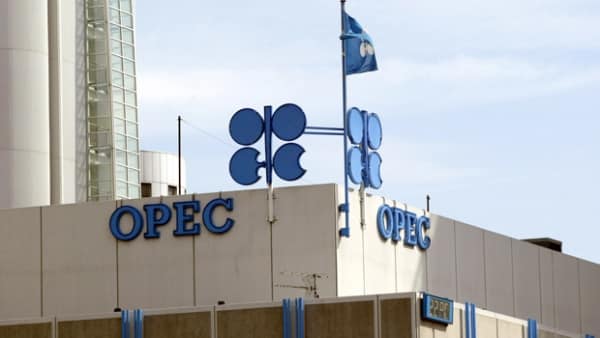OPEC and non-member oil producers are considering extending a global supply cut for nine months or more to avoid a price-sapping output increase in the first quarter of 2018, when demand is expected to be weak, OPEC and industry sources said.
The Organisation of the Petroleum Exporting Countries, Russia and other producers agreed last year to curb production by 1.8 million barrels per day for six months from January 1.
Oil prices have gained support but global inventories remain high, pulling crude “LCOcI” back below 50 dollars a barrel and putting pressure on OPEC to extend the cuts through the rest of 2017.
Production from countries not participating in the deal, such as the United States, has also been rising, keeping crude below the $60 level that OPEC kingpin, Saudi Arabia, and others would like to see.
The sources said OPEC countries, including core Gulf members, are discussing internally whether an extension of nine months or longer is needed to give the market more time to rebalance.
One industry source familiar with the talks said there had been discussions about extending curbs until the end of the first quarter of 2018, when crude demand should be seasonally weak.
The source said: “To increase production in those months may have a negative impact (on prices). So we may ask for an extension until the end of Q1 of 2018.”
An OPEC source said other ideas and scenarios could be discussed, adding that core Gulf OPEC producers had talked about an extension beyond six months.
Another OPEC source said it would be tough to get a consensus on prolonging curbs for more than six months but “anything can happen”.
A third source said an extension of up to one year could be an option.
Saudi Energy Minister Khalid al-Falih said on Monday the OPEC-led production cut could be extended beyond 2017.
Al-Falih said: “Based on consultations that I’ve had with participating members, I am confident the agreement will be extended into the second half of the year and possibly beyond.”
He stated this at an industry event in Kuala Lumpur and also, Russian Energy Minister Alexander Novak on Monday backed extending oil output curbs, saying it would help speed up a return to a healthier market.
Novak did not mention for how long he thought curbs should be prolonged.
OPEC officials generally believe the agreement is helping to bring the market closer to balance and that it should be extended into the second half of this year.
OPEC sources told Reuters on May 2 that a bigger cut was unlikely.
NAN.
Trending
- Governor Adeleke flags off new Osogbo Stadium, unveils sport agenda
- Lagos ends remote work for public servants
- Fasting: UMA pre-Ramadan lecture will enrich knowledge, add value — President
- Shell sees bright future for Nigeria’s deep-water production with the right conditions
- Ogbuku restates NDDC’s commitment to complete ongoing projects
- Dangote Refinery reduces diesel price by N55 per litre
- 3,000 Nigerians join YP4T to build stronger youth-led movement
- Sahara Energy Geneva applauds traders for supporting Mercy Ships, advancing SDGs


